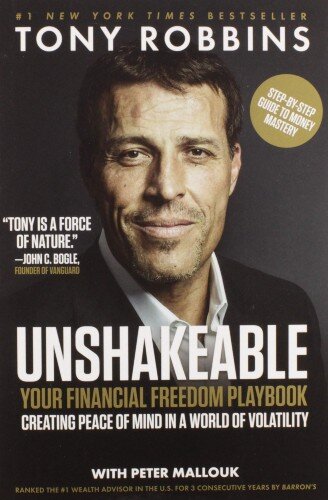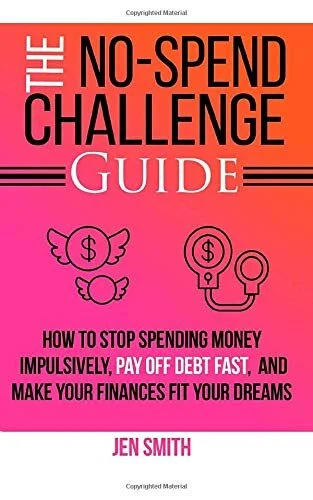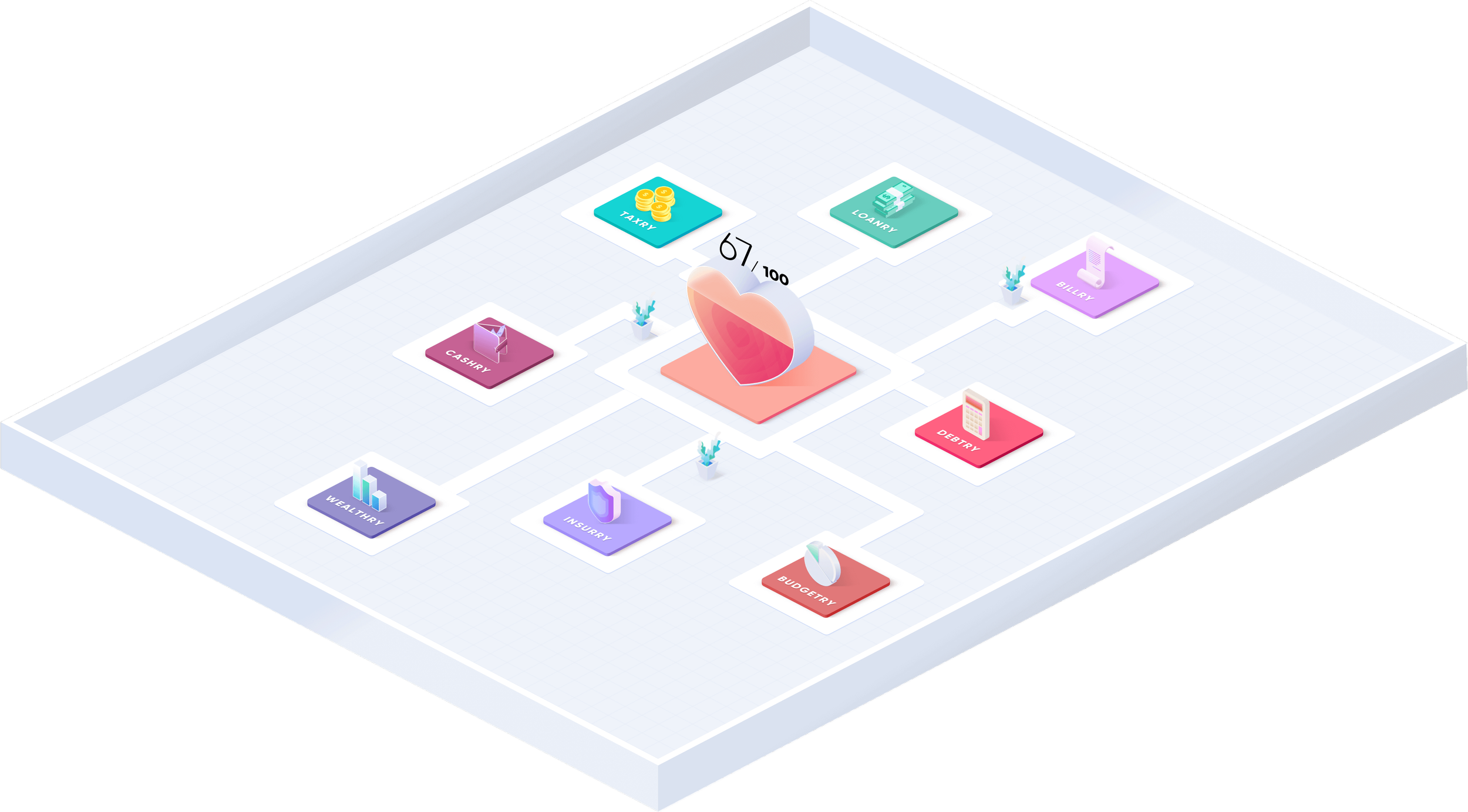Read All About Books on Saving Money and Budgeting
There are countless reasons to begin a budget for yourself, as a couple, or as a family. Maybe you're trying to save up for a trip, a new house, a new car, a comfortable retirement, or you're just trying to get control of your finances and start paying off your debts. No matter what your reasons are, if you're trying to save money, then budgeting is a good first step. However, there are many different ways to go about teaching yourself about money and budgeting.
There are so many budget tips out there, so it can be hard to sift through all of the available information to find what is relevant to and helpful for you. Well, now you don't have to — I sifted through the information for you and compiled some of the best resources for you here.
Saving Money
Have you ever heard "easier said than done"? Well, it's easy to say "I need to save money", but it's quite a different thing to actually put in the effort to save money.
One reason this is so difficult for some people is that they may think that in order to save money, they have to cut out everything they enjoy. That's just not the case. You may not be able to do whatever you want whenever you want, but you can enjoy life and save money. This is possible in two ways:
Cut back, but don't cut out
You may need to cut back on some spending, such as eating out or going to the movies, but you don't have to completely cut off spending in these categories. If you eat out every day, that may be too much. Instead, limit yourself to eating out twice a week. If you enjoy going to the movies, cut back spending by only going once every other week or by taking advantage of deals on movie tickets. You don't have to miss out — just remember: everything in moderation.
You may enjoy alternatives
Maybe you're not into cooking and just prefer buying food out. You never know: If you cut back and only allow yourself to eat out a few days of the week and must cook a few days of the week, you may find that you actually enjoy cooking. Even if you don't end up finding a love for cooking, maybe you'll find a recipe for something that you never would have tried otherwise — and maybe you'll end up loving it. We get stuck in our habits, but sometimes pushing outside our boundaries can allow us to find wonderful opportunities.
There are so many ways to save money. You just need to find the ways that make sense for your life situation.
Looking for books on saving money and budgeting? I've always said: “If someone doesn't like to read, then they just haven't found the right book.” Okay, maybe reading doesn't always have to be done for enjoyment, but I've certainly tried to collect a list of books on saving money and budgeting that are as enjoyable (as possible) to read and gain knowledge from.
In the past, I already compiled a list of the 7 Best Personal Finance Books for Beginners and the 7 Best Personal Finance Books for Experts. Here I've collected the best books on saving money and budgeting (thought I won't number them from best to worst because that wouldn't be fair — they're all worth the read):
Books On Budgeting
Unsure where to even start? Understanding budgets and how they can work for you is a good first step. Here's a list of books on budgeting that are simple and helpful:
Love Your Life Not Theirs: 7 Money Habits for Living the Life You Want by Rachel Cruze
Comparing yourself to others is a bad habit. Whether you're comparing your physical body to the unrealistic body expectations on social media, comparing your intelligence and success (or lack thereof) to your peers, or comparing your material possessions to your neighbor, comparison usually doesn't leave you feeling happy and content. Just like you shouldn't compare your body to someone who works as a fitness trainer, you shouldn't compare your wealth and personal financial goals to others.
This book helps you realize this habit of comparison for what it really is: the most damaging money habit we have. Rachel then goes on to share 7 money habits for living the life you want. Your budgeting and personal finance goals should be for you, based on your situation — your wants and needs. Rachel helps you figure out how to do just that.
I Will Teach You to Be Rich, Second Edition: No Guilt. No Excuses. No BS. Just a 6-Week Program That Works by Ramit Sethi
School taught us a lot of things (hopefully), but dealing with personal finances is usually not one of those things. If you never learned the basics, this is the book for you. Whether you're interested in paying off your student debt (which you likely are, since U.S. student debt has increased by more than 100% over the past 10 years), setting up a bank account (one that's no-fee and high-interest — remember, we're here to tell you how to make your money work for you, not the other way around), or negotiating that next big raise at work (you deserve it — now you just need to persuade your boss that you do), Ramit covers it all.
If you get the 10th anniversary edition of this book, you'll even get additional tips, with new tools and insights.
Unshakeable: Your Financial Freedom Playbook by Tony Robbins
Tony Robbins didn't just play himself in a movie where he hypnotizes Jack Black and allows him to fall in love with women's inner beauty — and Gwyneth Paltrow (re: Shallow Hal). Tony Robbins is actually an author, coach, speaker, and philanthropist. Tony shares his wisdom with people through a variety of mediums, including infomercials, seminars, and self-help books.
In Unshakeable, Tony shares the path to financial freedom and takes you on a journey to transform your financial life. He makes this simple to follow, by making this a step-by-step guide on money mastery. According to Tony, it doesn't matter how much money you make or what stage in life you're at: The tools provided in this book can help you achieve your financial goals.
You Need a Budget: The Proven System for Breaking the Paycheck-to-Paycheck Cycle, Getting Out of Debt, and Living the Life You Want by Jesse Mecham
I completely agree with Jesse on this one: You need a budget. Especially if you're living from paycheck to paycheck and are drowning in debt, creating a budget should be priority number one. Think of it this way: How can you make good financial decisions if you can't even see the big picture of what you're dealing with — all your debts, as well as all your income and regular expenses?
If you're looking for something easy to follow, then this is it. Jesse helps you see your big picture, and all you have to do is follow his method — which only has four, simple rules:
Give Every Dollar A Job
Embrace Your True Expenses
Roll With The Punches
Age Your Money
To find out more about these four rules, and how they can change your life, pick up a copy of You Need a Budget today (because why put off to tomorrow what you can do today).
Save On Gas, Electricity, Internet. All In One Place. Meet the Billry Store.
Books On Saving Money
Budgeting can help you see which areas you need to save money in — actually saving money, though, is a different story. If you need help saving money, consider reading one (or all) of the following books on saving money:
Living Well Spending Less: 12 Secrets of the Good Life by Ruth Soukup
Budgeting and spending are all about finding a balance. The great thing about this book is that you can tell that Ruth has been in your shoes. She knows the struggles and stress that can come from having an unorganized life and budget — but she made it, just like you will. Ruth uses personal stories, practical action plans, and even biblical truths to explain her journey and help you begin yours.
If you're a woman who is struggling with budgeting and saving money, then this book is for you. Ruth specifically focuses on bringing hope and encouragement to women everywhere.
The No-Spend Challenge Guide: How to Stop Spending Money Impulsively, Pay off Debt Fast, & Make Your Finances Fit Your Dreams by Jen Smith
There are many reasons why someone might be spending money impulsively. Some people spend money impulsively when they're sad, some people spend money impulsively when they're happy, some people spend money impulsively to impress others, etc. The list goes on and on. While this is a common issue, it is also an important one to break. It can be challenging though, so Jen decided to break it down for us.
Jen explains why budgeting alone isn't enough, what is behind your impulsive spending, and how you can get rid of your debts while also saving money on your financial obligations. Jen uses No-Spend Challenges to share her experiences and strategies with us. Her goal is to change your mindset on money, so that you can finally stick to a budget and save money.
The Everything Budgeting Book: Practical Advice for Saving and Managing Your Money — from Daily Budgets to Long-term Goals (Everything®) by Tere Stouffer
The Everything Budgeting Book — that really says it all, doesn't it? Well, not quite. I put this book in my list of books on saving money, not my list of books on budgeting. I put it here because it has such a helpful step-by-step guide on saving money on everyday expenses and has helpful tips on improving your spending patterns.
This Everything Budgeting Book is great because it looks at the big picture as well as the small picture, with practical advice on everything from daily budgets to long-term goals.
Pay Off Your Debt for Good: 21 Days to Change Your Relationship With Money & Improve Your Spending Habits So You Can Get Out of Debt Fast by Jen Smith
Like many of the other books listed here, Jen's book on paying off your debt for good also focuses on changing your mindset on and relationship with money. (And yes, that's right. This is the same Jen from the No-Spend Challenge Guide above).
Jen knows the barriers that can hinder you from paying off your debt and reaching your financial goals — and she has advice on knocking down every last barrier you encounter. That may seem a bit cocky, but if anyone can do it, it's Jen. Jen and her husband paid off $78,000 of debt in just 23 months. You can imagine how many barriers she must have overcome to be able to accomplish that!
Fun Books On Budgeting And Finance
Okay, so I said that not all books have to be for fun — but books about finance can also be fun! Here's a couple that might reach you on a different, more personal and fun level.
Pay The Fucking Bills: Monthly Bill Planner and Organizer, Funny Monthly Bill and Household Expense Tracker
More of a planner and organizer than a book to read, Pay The Fucking Bills is a really fun way to track your spending and budget. This planner has spaces inside to track all of your monthly bills, as well as your other household expenses.
Reading books to gain knowledge about budgeting is important, but a book that you can write in yourself and more easily track your expenses is also important — especially if you like to track your budget by hand, rather than online. If you're having fun budgeting, then you're more likely to really stick to it. And trust me, you'll have fun with this bill planner.
Vladimir Putin: Life Coach by Robert Sears
Do you like politics, or do you at least enjoy keeping up with international news? Even if you answered no to both questions, you probably still know who Vladimir Putin is. Unsure how stories about dominating the Kremlin or undermining the U.S. can help you when it comes to budgeting and finance?
Though not focusing on budgeting itself, this fun book uses crazy yet relatable scenarios to show you how to take control of your life — which is really what budgeting and personal finance is all about.
Budget Management
One of the top tips regarding saving money and building a budget is to be realistic. If you follow this tip, then everything else should fall into place. If you set realistic expectations for yourself, then your goals will be attainable — and thus easier to reach. This may take more time at the beginning, but it will save you time later — so you'll hopefully require less budget adjustment later on. You won't be able to change your bill payments (well, you may be able to if you negotiate your bills), but you can change other non-fixed expenses. Be realistic when doing this — remember, don't cut out, cut back.
If you're looking for a way to turn chaos into order, then look no further. Goalry and the Budgetry Store can help with your budget management. The Budgetry Store is a store of free budget tools, which can help you organize your personal finances.
The Budgetry Store does this by connecting your accounts all in one place, allowing you to more easily review your financial accounts and overall personal finances. You'll also be able to use The Budgetry Store to set a budget to fit your needs (and wants), which will ultimately help you make better financial decisions. Remember: The point is to put you in charge of your finances.
The Budgetry Store is just one of many helpful Stores within Goalry, your Financial Goal Mall. Goalry allows you to reach your financial goals and comparison shop for any money matter — all in one place. Whether your financial goals have to do with reviewing and managing your debts (The Debtry Store), finding the right loan for you (The Loanry Store), or getting information about taxes and comparing tax offers (The Taxry Store), Goalry can help. Goalry even has an app — which adds convenience and efficiency to your budget management.
The Goalry Mall. Where Goals Happen.
Conclusion
Saving money and budgeting can be difficult, but you're taking the important first big step: educating yourself on personal finance and budgeting. Besides, once you start it just gets easier. You might even find budgeting as fun as I do someday — you never know!
The important thing is to just start and then stick to it. Then, if it's not the right budget for you, you can always make incremental changes until you find the right formula for you and your personal finances. Once you find this balance, you'll be set. Like anything, budgeting is just something that you need to learn — it takes time, but once you do, you'll have it for life.













